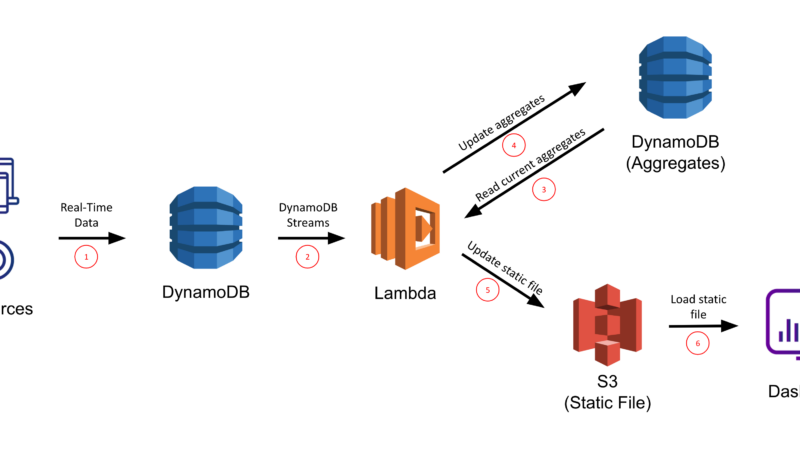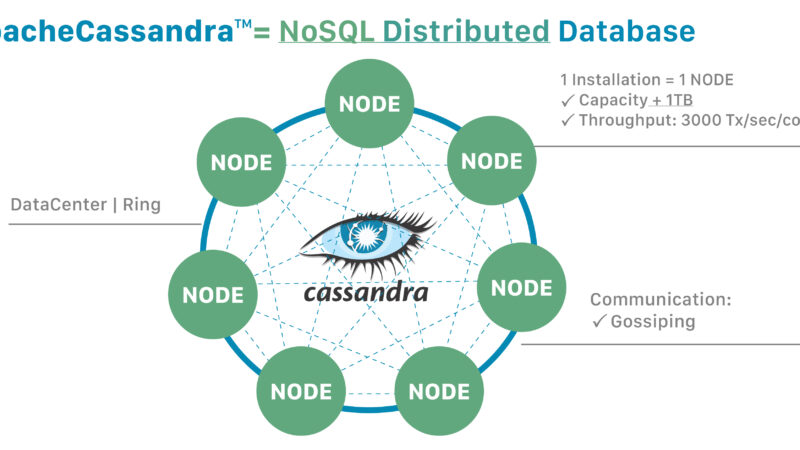Autonomous Engineer Interview Questions
Technology is gradually making things easy for everyone especially using automation techniques. As a result, most of us don’t have to invest in hard labor to undertake some jobs. In that case, the automation area is marketable, with many organizations looking to hire autonomous engineers. However, despite the high demand for these experts, companies still hope to hire some of the best people in the industry. In that case, interviews are pretty important. So, are you an autonomous engineer who wishes to pass their interview in flying colors? If yes, this piece is an excellent choice since this article explains the best autonomous engineer interview questions and relevant answers.
What do you mean by an autonomous engineer?
Autonomous engineers are people who work on products or machines to work independently. These engineers design, program, simulate, test, and process automated machinery that serve various industries such as energy, manufacturing, vehicle engineering, processing, robotics, and other factors. In other words, autonomous engineers are individuals with automation skills that assist in various areas.
Highlight some of the basic skills that autonomous engineers need to have
Generally, there are many things that autonomous engineers need to know. However, there are essential skills that an excellent autonomous engineer needs, including:
- Configuration management: good management of projects is a necessary skill when undertaking automated procedures. As a result, the probability of failing is relatively low when these experts know what is happening throughout the entire project. Besides, massive projects require teamwork between various experts.
- Troubleshooting: From an autonomous engineer’s job description, you understand that testing is one of the jobs. It requires them to detect any errors that may lead to functional issues using programming tools. Therefore, troubleshooting skills are necessary if you wish to create automatic machinery.
- Development Methodology: When creating strong systems, several small systems are integrated to create something solid. As a result, it involves working with other workers. This fact makes familiarity with development methodologies or standards such as DevOps necessary. Note that these standards or processes assist in increasing the production speed.
- Coding and Scripting: Automated systems and testing require you to know some programming languages. Object-oriented languages have powerful functions that assist in the integration phase. Standard languages include Python, Java, Ruby, C, Perl, and Shell.
- Certifications: Note that certifications are official recognitions of knowledge in both software and hardware. Other certifications include VMP, PMP, CCNP, and others. Many companies and organizations pay attention to the certifications to ensure that the people they hire have the qualifications.
As an autonomous engineer, what do you understand by robotics?
Robotics blend engineering and science to study development, operation, and intelligent robot control. It is a branch of Artificial Intelligence that develops machines that effectively undertake complex activities.
Explain a robot?
It is a programmable machine that automatically undertakes complex tasks and efficiently completes them. Note that they are governed by internal or external input when undertaking the tasks. Besides, they can either resemble a human or a standard machine but currently, many people settle for the standard machine design.
Which was the first industrial robot globally?
The first robot is the Unimate, invented by George Devol, an American inventor, in 1950. However, its first official business was in 1954, transporting die casting form and later welding on the auto bodies. This invention successfully encouraged many autonomous engineers to join the business.
Explain one of the best autonomous engineer inventions that motivate young people to join the field
One of the common influences motivating young people is leading developing companies such as Tesla and Waymo, Google’s former self-driving project. Some individuals are making significant innovations in the industry, such as Tesla’s CEO, Elon Musk, who built an electric car despite the popularity and dominance of engine-based cars. Last but not least, Elon Musk built a self-driving feature that defines what the future entails.
What is your view on electric cars?
Generally, various organizations and government administrations are trying to adopt better ways of improving the environment. And one of the things that can easily contribute to environmental saving is electric cars. And companies such as Tesla, Nio, Volkswagen, and Ford Motor are working on electrifying the existing cars and creating new electric cars. Additionally, they are including automated technologies such as self-driving to make the vehicle industry more prominent and better. Currently, electric cars are the future of the vehicle industry since they are powerful, perform well, are environment-friendly, and are easy to navigate.
Autonomous systems and robotics require some essential functions. Which are they?
Generally, autonomous systems require robotics, mostly in machine standards. Therefore, there are five common components that an autonomous engineer needs to fulfill. They include:
- Power supply
- Actuators
- Electric motors
- Sensors
- Controller
Explain the five key components of an autonomous machine or robot
Power supply: For any device or machine to run, it needs a stable power supply. Therefore a robot needs energy from power supplies to undertake the scheduled tasks. You can get power from batteries, solar power, hydraulic or pneumatic sources
Actuators: These devices’ primary role is to convert potential energy to kinetic energy. In other words, converting stagnant energy into moving energy.
Electric motors: Generally, motors convert electrical energy to mechanical energy. As a result, robots or autonomous machines use motors to deliver different movements to various parts. Since the machines perform various functions, you use brushless DC motors in portability, while the AC motors are excellent for industrial work.
Sensors: As the name suggests, sensors naturally sense the environment’s changes and deliver the proper signal. As a result, most robots include sensors that sense the surroundings and respond accordingly.
Controller: This part is pretty important since the controller is the brain of the machines whose key role is to coordinate and control all the robot’s essential components. As a result, the machine ends up undertaking the necessary tasks. Every controller includes a microprocessor that undertakes multiple signals.
Why are people adopting autonomous engineering in their organizations?
It is no secret that autonomous engineers are some of the most advanced experts in the technological field. As a result, it is quite a marketable course for all. So, why are organizations desperately looking for autonomous engineers? There are several reasons, including:
- Robots are powerful machines that perform tasks efficiently and precisely
- Machines are 24/7 works that can work at anytime
- You don’t have to worry about dangerous tasks since machines aren’t prone to health issues
- They are cost-effective in various industries
In Autonomous engineering, there is an emphasis on intelligence. So, what is intelligence?
Normally, humans behave in the best way possible since they can easily logically handle things. And this simple human behavior is what we call intelligence. Also, when humans face new environments, they naturally adapt to them, which also means intelligence. Note that psychologists characterize intelligence not just with one trait but also with many abilities that make them stand out among many living things.
What are the components of intelligence?
There are many characteristics that people use to define intelligence. They include:
- Learning: There are many forms people use to learn, especially in Artificial Intelligence. And the most common one is the ability to learn new things.
- Practical: This feature involves doing practical things
- Analytical
- Creative
What is Artificial Intelligence, AI?
Artificial Intelligence is a machine controlled by a computer to undertake various tasks. They control the tasks usually done by humans since they require discernment and human intelligence. Note that these machines include powerful parts that assist them to think similarly to an intelligent human. In other words, machines can reason and think logically.
Why do autonomous engineers need AI?
It is no secret that autonomous engineers need the right technology to automate their machines. As a result, AI is an important division that these engineers need since it involves details on robotics, self-driving, and other technical areas. Note that AI as a field helps autonomous engineers to increase the quality of work, deliver safe technology and ensure that humans are safe.
Explain the Pneumatic System in Robotics
The pneumatic systems do the same job as the motors, driving machines. However, unlike motors, they use compressed gases. Therefore, the robotics field is slowly replacing the electric and servo motor with the pneumatic system due to its convenience.
How does the pneumatic system work?
A pneumatic system includes a cylinder piston that travels upward and downward to create enough pressure to drive a machine.
List the five IEC1131 programming languages
Here are the five IEC1131 programming languages:
- Instruction List, IL
- Structured Test, ST
- Ladder Diagram
- Function Block Diagram, FBD
- Sequential Function Chart, SFC
Explain one thing that organizations look for when they wish to hire autonomous engineers
If you pay attention to the latest news in the autonomous industry, you understand the multiple frequent progress. In other words, we have new announcements almost every week thanks to the many innovations. As a result, a company or organization looking to hire an autonomous engineer wishes their candidate to keep up-to-date with the current trends. Why? Because it helps them stay equipped with the current invention and what improvements they would make in the technology available.
What is the most exciting thing about autonomous vehicles as an autonomous engineer?
Autonomous engineering is an important sector in the technological world since it represents the future. And what is the most exciting thing about autonomous vehicles is that they improve the quality of life, and as an autonomous engineer, you are part of this innovation. It helps every engineer to feel happy for being part of something bigger than them. Additionally, there are innovations in the field almost every day.
What is the most challenging thing about being an autonomous engineer?
The autonomous engineering department changes all the time, mainly thanks to the everyday inventions that improve the sector. However, these rapid changes don’t always work as an advantage for the engineers mainly because they need to keep up with recent improvements. Also, organizations or companies tend to expect more from them due to the competition among different companies.
As an excellent autonomous engineer, how can you ensure that you keep up with the industry’s current trends?
The autonomous engineering department is demanding and changes rapidly; hence the engineers need to ensure that they are up-to-date with the various improvements. Therefore, autonomous engineers need to join various technological communities where different experts from companies share details about their growth.
Name some of the common types of motors you can expect in industrial robots
There are many types of motors available that industries use. However, the most standard types you will come across in different industries include:
- Servo motors
- DC/AC motors
- Stepper Motors
- Belt Drive motors
- Arm adapted motors
What is the most crucial thing an autonomous engineer needs to consider?
Autonomous engineers are part of a development plan that involves multiple experts. As a result, an excellent autonomous engineer needs to learn teamwork and work with different experts to work towards the same goal. And for a good collaboration, you need good listening skills, tolerance to other members, obedience, and respect for people’s opinions.
Highlight the standard development cycle that autonomous engineers follow
The autonomous engineering field requires the experts to follow a simple development cycle that consists of:
- Creativity: Autonomous engineers need to be creative, explore the gaps in the area, and find the best solutions
- Plan: Determine the best strategy to follow to execute your idea
- Execution of the strategy: It involves the application of your skills to execute the plan
- Testing: Test the final product and the impact it has on the available technologies
- Implementation: This phase includes working with various experts in other departments and finally implementing the idea.
As an autonomous engineer, how do you deal with ambiguity?
The autonomous engineering department is quite complex since it features essential requirements. However, engineers often face ambiguity, and the best way to deal with it includes:
- Engineers need to be confident in the skills they have and take risks
- Communicate with other people who are part of the development cycle
- Embrace changes
- Remain calm and productive
- Engineers need to positively deal with problems that don’t have a clear outcome
What is the future of autonomous vehicles?
Currently, many self-driving technologies are improving the sector. However, nothing is permanent in the department hence new innovations that improve the quality of life will keep arising with time.





